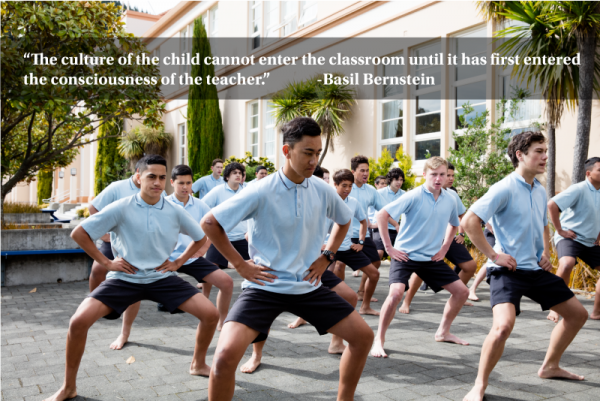We've come a long way - cultural competence
3 May 2018

Cultural competence in an education setting sets the standard for teachers and guides the behaviours and attitudes that contribute to an environment where all tamariki feel like they belong. And, belonging is one of most fundamental measurements that tell a child that they are accepted, and belonging responds to a need just like kai and shelter.
Few professions are more aware of the needs of a child the way teachers are; they hold one of the most influential positions capable of meeting those needs. It is teachers who are most likely first to see the struggles and challenges tamariki experience as they navigate their way through the complexities of life.
That puts a big responsibility on the shoulders of teachers, and that weight can sometimes feel overwhelming. Today’s society is not the same as it was a generation ago, and neither will it be in the next twenty years. Being aware and able to respond to the individual needs of each child is not an easy task, and teachers are, after all, people who are also products of their environment.
Sometimes unintended mistakes are made and values misaligned, that happens, but putting it right is the most important way to show that where we come from, who we are, and why we do the things we do, matters. And it matters so much, that to continue to get it wrong when we know better causes harm that may never go away.
The Children’s Commissioner report series Education matters to me provide evidence of the heartbreaking reality some tamariki experience, “If they can’t understand me, how can I understand them?” is a quote by a Māori learner. The Commissioner’s research tells us that there is still much to be done, but that should not mean we forget the distance we have come and the way teachers have held the hands of their learners on that journey.
Research tells us that almost all teachers use te reo Māori to tell stories, greet, farewell, give instruction, and that they highly value the language. And why wouldn’t they, teachers teach because they can, just like doctors and nurses heal; it’s who they are, no matter where they are from.
There is more work to be done for sure, more support needed for that work, but we must also celebrate the progress that we have made as we look to make a whole lot more progress.
Teachers are not perfect, and neither should we expect them to be, what’s important is that our tamariki belong, our teachers belong, and our whānau belong.
